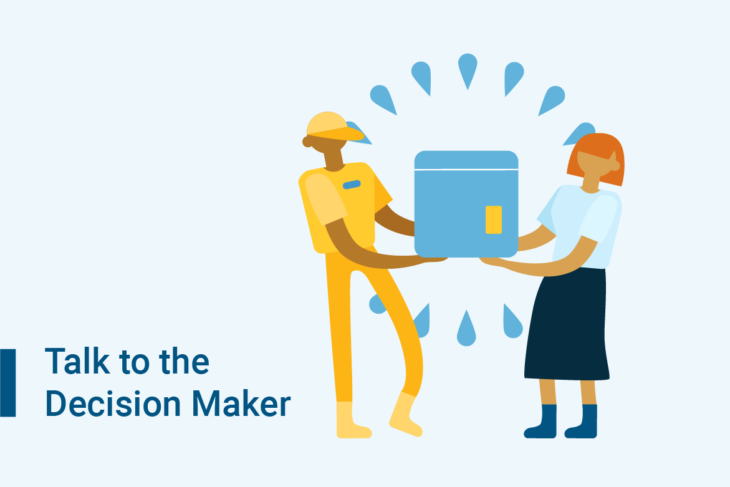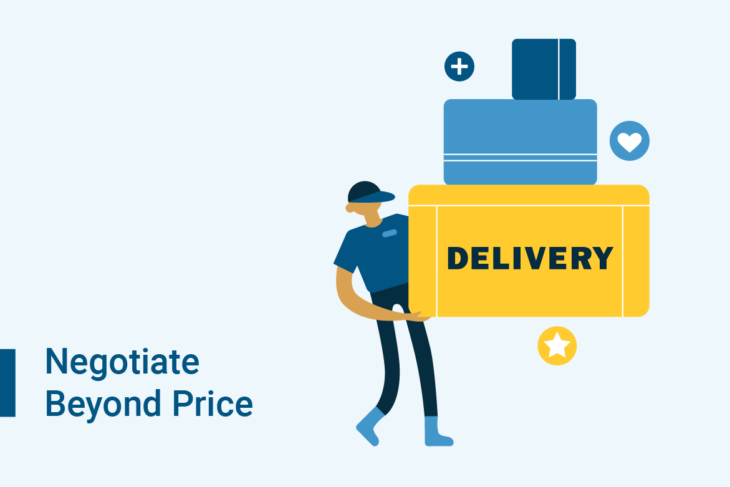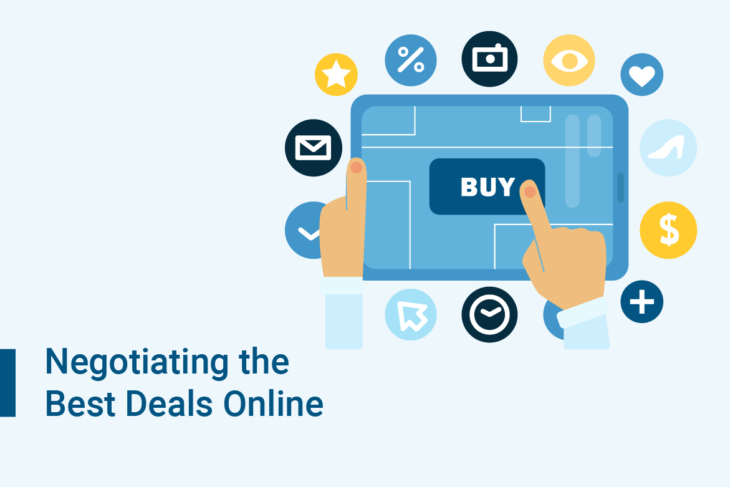Many of us expect to bargain prices for big-ticket items such as cars and houses – especially when buying face-to-face. Yet there’s no reason you shouldn’t strive for a better deal when buying less expensive items online. Always paying the full price when you could have negotiated a better deal eats into your savings.
Here are a few tactics to consider when seeking better deals online.
Contents
Research the Market
The first step to securing the best deal is to find out the market value of what you want to buy. Negotiation Experts recommend using tools like Shopzilla to see price comparisons across the board. Knowing the facts when it comes to pricing gives you a chance to buy at the best price straight off the bat.
Make sure you also consider factors like high shipping, return costs, and customs charges that could cause the costs to stack up, especially when a store looks like it’s offering the best price.

Source: Twipu
Check the Store is Legit
It might sound obvious, but sometimes a low price is too good to be true. Keep in mind that there are many scam sites online, so start by verifying that the store with the best price is legit by checking:
- Reviews from other buyers on websites like Consumer Reports and Trustpilot.
- Verification badges when shopping on sites such as Amazon and Alibaba.
- Whether your friends or family have any experience with the store.
Join Email Lists
Online stores often send exclusive offers and discounts to their email lists. You may also receive higher discounts if you join the store’s loyalty club. Keeping an eye out on the store’s online content can let you know of any specials and discounts the store is running. For instance, signing up to receive notifications on social media can mean you’re among the first to know of any deals.

Source: Finder
Add to Your Cart
While shopping online, you might add something to your cart if you intend to buy it later. Many retailers will try to convince you to make the purchase by reminding you of items left in your cart, using automatic prompts. You can take advantage of this by adding items you intend to buy later to your cart. Placing items in your cart tell the retailer that you are serious about buying but may be facing an issue that’s preventing the purchase.
Some stores may go a step further and reach out to find out what they can do to assist you in making the purchase. For example, if you intend to enroll for an online training course but abandon checkout, the course’s facilitators might reach out to establish your interest.
Talk to the Decision Maker

With most brick and mortar stores, the buyer first interacts with a sales rep. Yet, if you want a discount or more favorable terms, you likely need to speak to a manager. Online stores are no different.
Though most of the established brands won’t provide much wiggle room for bargaining, specialty stores or niche stores may hear you out. For instance, a specialty store on Instagram is likely more willing to negotiate than talking to a sales rep on the Prada website.
When preparing for negotiations with a specialty store, ask the sales rep whether they have the authority to approve discounts. If the discount the sales rep offers is less than desirable, ask to speak to the owner. If the sales rep is unwilling to share the contact details, search online.
There are several ways you can find the manager’s contact details – for instance, a search engine query, the Wayback Machine, social media pages, or newsletters. By speaking to a decision-maker, discount decisions may be more binding than offers made by a sales rep.
Communicate Clearly
The internet gives you access to online stores worldwide. If you’re reaching out to a sales rep, bear in mind that depending on the store, the reps may not be from your country or speak your language. Offshoring of customer service is highly prevalent with online stores. Make sure you can talk with the rep in a language you’re both comfortable with.
Apart from language barriers, there can be a confusing number of options to communicate with online stores. Most online stores have a convenient chat option as well as phone calls or emails. Some stores even offer up social media contact information, with special accounts set up for dealing with customer service queries.
As a general rule, choose voice calls over email or chat options to encourage open dialogue. To later confirm offers, communication training experts advise using options that keep a record of any discussions.
Bargain on Volume
If you’re a volume buyer or a reseller, you may be eligible for bulk discounts. Find out how to contact the online store’s manager about discounts available for people who buy in bulk.
Most online stores are happy to make some concessions for buyers who significantly raise their sales quotas. If you’re a repeat customer or member of a buyer group, you can also leverage your volume buys to negotiate new terms. You may also leverage on timing. Store managers are usually more willing to make concessions when it’s closer to the end of the month, quarter, or year.
Negotiate Beyond Price

As a buyer, the price may not be the only important factor. For instance, paying in installments may benefit your cash flow even if the total cost remains the same.
Some stores may provide extras only if you enquire. Other aspects of negotiating beyond price include warranty improvements, product training, faster shipping, extra accessories, and customized packaging.
Talk to Competitors
Check whether your chosen retailer offers price matching. If an online or offline competitor offers the item at a lower price, an online store might offer the same price or lower. Talk to multiple merchants to encourage competitive bidding.
During negotiations, let the contact salesperson know that you have competing bids that are as attractive or even more attractive. By promoting competitive bidding, you’re far more likely to secure attractive discounts and add-ons.
Choose In-Store Pickup
Shipping can increase the store’s overheads. The logistics and tracking involved add up to the store’s expenses. Some stores charge lower prices if you pick up the items yourself.
Aside from lower prices, there are many other reasons why in-store pickup would be preferable for online buyers. For instance, some shipping companies experience heavy losses due to items lost during dispatch and delivery.
If you plan on being a regular buyer, with smaller retailers, in-store pickup can also lead to meeting the store owner and striking up a conversation that could lead to an ongoing relationship for future purchases. In-store pickup may also provide a training opportunity to know the product better.
Negotiating the Best Deals Online

Shopping online is convenient and is one of the best ways to get the best possible deal. Online stores know there’s stiff competition and are usually willing to offer discounts to shoppers. Buyers with a knack for negotiating can talk to store owners and sales reps to gain extra discounts and better terms. Follow the tips outlined in this post, and you can enjoy better deals than the listed price.
